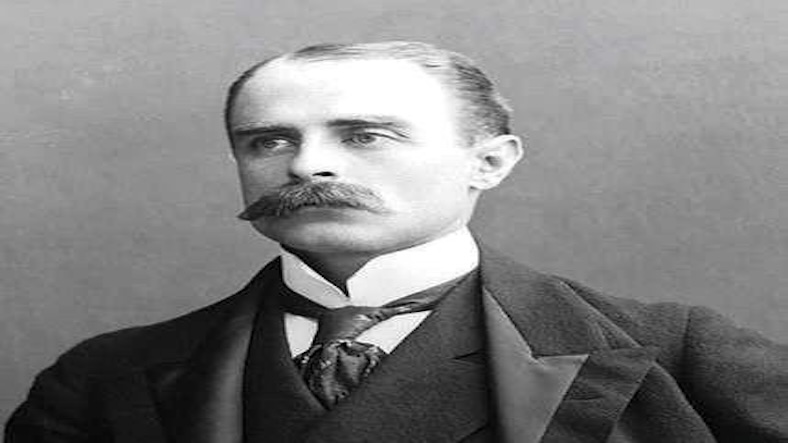Francis Younghusband (1863-1942) was a British explorer, soldier and diplomat known for his expeditions in Central Asia and his role in the exploration and expansion of British influence in the region. He is particularly famous for leading the British military expedition to Tibet and his involvement in the Great Game, the geopolitical rivalry between the British Empire and the Russian Empire in Central Asia during the 19th century.
Here are some key aspects of Francis Younghusband's life and contributions:
- Early Life and Education: Francis Younghusband was born on May 31, 1863, in Murree, British India (now in Pakistan). He was educated at prestigious institutions in England, including the Royal Military Academy Sandhurst.
- Explorations in Central Asia: Younghusband's fascination with exploration led him to undertake several journeys in Central Asia. His journeys included expeditions to remote and challenging terrains, where he interacted with local cultures and gained insights into the region.
- Tibet Expedition: One of Younghusband's most significant achievements was leading the British military expedition to Tibet in 1903-1904. The expedition aimed to establish British influence in Tibet and secure favorable relations with the Tibetan government.
- Treaty of Lhasa: The Tibet expedition resulted in the signing of the Treaty of Lhasa in 1904. The treaty granted Britain control over certain areas of Tibet and allowed British officials to be stationed in the region.
- Great Game: Younghusband's activities in Central Asia were part of the larger Great Game, in which Britain and Russia vied for influence and control over the strategic region. His expeditions contributed to British efforts to secure their imperial interests in the area.
- Diplomatic Career: After his expeditions, Younghusband served in various diplomatic roles. He was the British commissioner to Bhutan and later held diplomatic posts in China and India.
- Spiritual and Philosophical Interests: Younghusband developed an interest in spiritual and philosophical matters, which he explored through his writings. He was influenced by theosophy and Eastern philosophies.
- Legacy: Younghusband's expeditions and contributions to British imperial interests in Central Asia are significant aspects of his legacy. He is also remembered for his writings on exploration, philosophy and spirituality.
Francis Younghusband's explorations and diplomatic efforts left an indelible mark on the history of Central Asia and British imperial interests. His role in the Great Game and his interactions with the cultures of the region continue to be subjects of historical interest and study.
Thanks for reading the about this great personality on our peoples blog, for more such great people read our peoples blog articles.










